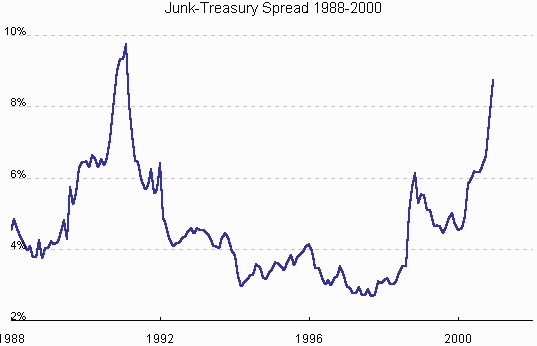Thanks Ronin. I have my spreadsheet set-up. I may be able to get historical data. If not I will gradually have a lot of data anyway.
Just a cursory look says that, as Brewer said, the current spread of around 3% is low by historical standards. I don’t know what the largest historical spread was, but I think it was at least 10%.
Say things get unbelievably wonderful, and that spread narrows to 1%, with gov’t rates basically unchanged. As I see it, I would be out roughly Duration * 2, or no more than 10%. If govt yields decline, I guess it is possible but very unlikely that High yields could decline along with them.
I say unlikely, because I can’t see government yields declining without a very weak economy, which should directly and adversely affect junk.
On the upside (yields up) there is a lot more room, IMO. Also, the likelihood of upside moves seems greater, to interact with larger potential payoffs.
I am considering an investment in "Access Flex Bear High Yield Fund", a fund which attempts to move inversely to the high yield markets by buying a selection of credit default swaps. It has costs of 1.55%, high, but IMO not bad for a relatively short term commitment.
I have to check, but I think this should give me the chance to get long term capital gains, as opposed to the short term gain of a short sale of a high yield ETF. Also, I can buy it in my tax deferred accounts too.
Critiques welcome.
ha

